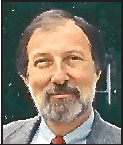By David Taub
In recent Op-Ed pieces, I described the way Beaufort’s Mayor/Council form of municipal government is structured and operates. Upon election, the Mayor and four Council members are granted exceptional authority to pass new legislation/ordinances, modify and/or eliminate current ordinances, create form-based codes and execute additional legislative responsibilities.
These rights and duties grant them extraordinary authority, obligations and responsibilities, none of which should ever be taken lightly. Each elected member of Beaufort’s government must be fully informed and well prepared if they are to serve the best interests of our citizens. Most of all, the Mayor and Council members must provide compelling leadership in guiding the ship of state for the good of all Beaufortonians. We should expect nothing less from our elected officials.
Electoral democracy, absent competent and constructive leadership, creates an environment of degraded confidence in government’s ability to make wise, responsible and competent decisions. The absence of mature and strong leadership is a recipe for dysfunctional government, unaccountable decisions and unimaginable levels of defective and negligent decrees that negatively affect society.
When citizens lose faith in their government, democratic government ceases to work.
Typically, “ambition” seldom actually leads to “achievement;” the former is Herculean and the latter sadly Lilliputian. This saying is especially true when applied to government and its leaders.
Taub’s Third Law of Government is: “When all is said and done, a whole lot more gets said than done.” Talk is the cheapest coin of the realm of governance; in reality, making appropriate decisions is golden.
Exercising effective leadership is a difficult and exacting task; I know it all too well from 15 years in elective service, first as a City Councilman and subsequently as Beaufort’s Mayor for almost a decade. The weights of leadership are most challenging when arduous and critically important decisions must be made.
It is of paramount importance to learn and benefit from important lessons gleaned from past failures lest we are doomed to repeat them. Or, as the famous philosopher George Santayana said: “Those who cannot remember the past are condemned to repeat it.”
Providing strong and competent captaincy in any enterprise is a taxing and exacting mission, made even more formidable when critically important policy decisions must be made for the public good. When “good government” contributes to the well-being of its citizenry, this creates respect and confidence in it; neither can democratic government survive without it.
Government cannot, nor should it, solve all our problems. The citizenry itself has an important and critical role to play in the interface between those who are elected to govern and those who are governed by them.
Mirabeau B. Lamar, the famous Texas patriot and first governor of the Republic of Texas, best known as the Father of Texas Education, preached over a century ago: “The enlightened (by which he meant “educated”) mind is the guardian genius of democracy.”
And no less a founder of our American experiment with democracy than President Thomas Jefferson made the same observation a century before Lamar: “I know no safe depositor of the ultimate powers of society but the people themselves; and if we think them not enlightened enough to exercise their control with a wholesome discretion, the remedy is not to take it from them, but to inform their discretion.”
Providing strong leadership is the fundamental duty of elected officials; likewise, it is no less the responsibility of citizenship to be informed, a central pillar of “Western” democracy. Citizens have a civic responsibility to be well “enlightened” about, and engaged in, the business of their government. It is an obligation as old as the Athenian invention of “democracy” as a formula for living in a civilized society.
Have such historically virtuous notions of wisdom, accountability and steadfast leadership in government become passé in our complicated modern life? I say “No!”
I believe that in today’s challenging civic arena, the virtues of real leadership are mandatory more than ever.” Paul Keating, Australia’s Prime Minister, provides the litmus test: “Leadership is not about being nice. It’s about being right and subsequently, being strong.”
Shall we citizens require our local leaders to be right and strong? Of course. Have our local elected officers lived up to their responsibilities of trustworthy leadership? Have we received it? Did the ex-Mayor and other councilmembers exercise meaningful leadership in recent decision making? Have they been strong and right?
Our citizenry shall vote that verdict. The true mark of real leadership by elected officials is to openly acknowledge when making a mistake, to make promises to correct their error of judgment, and to deliver on their promises.
“Well, all I know is what I read in the newspapers.” – Will Rogers.
David M. Taub was Mayor of Beaufort from 1990 through 1999 and served as a Beaufort County Magistrate from 2010 to 2015. You can reach him at david.m.taub42@gmail.com.








